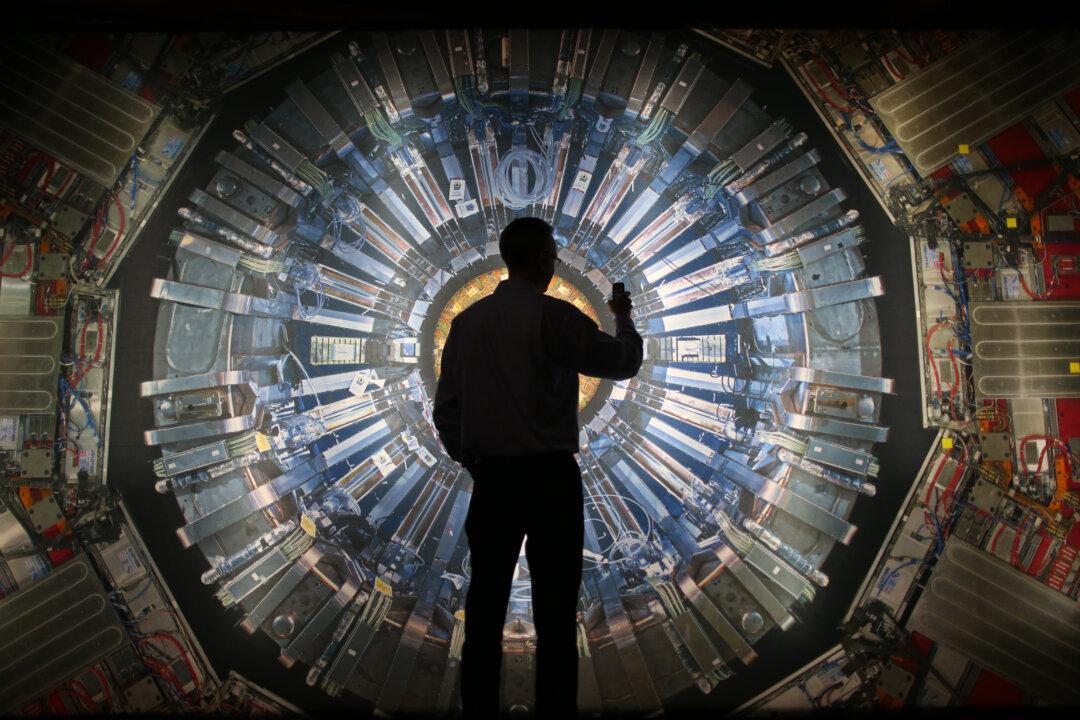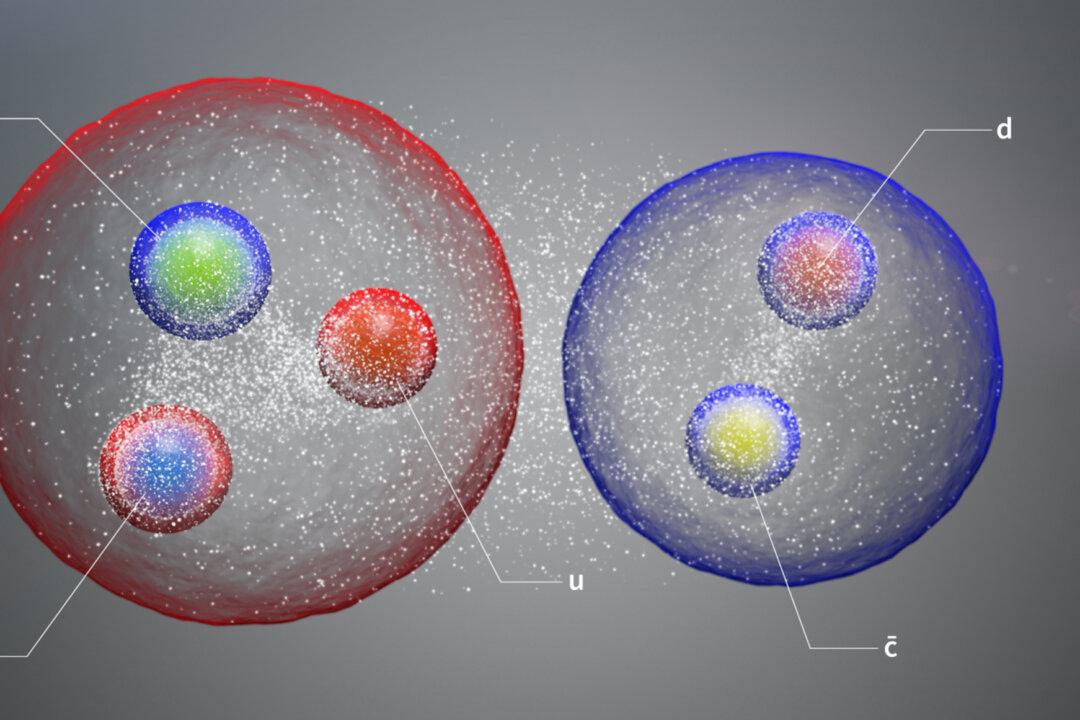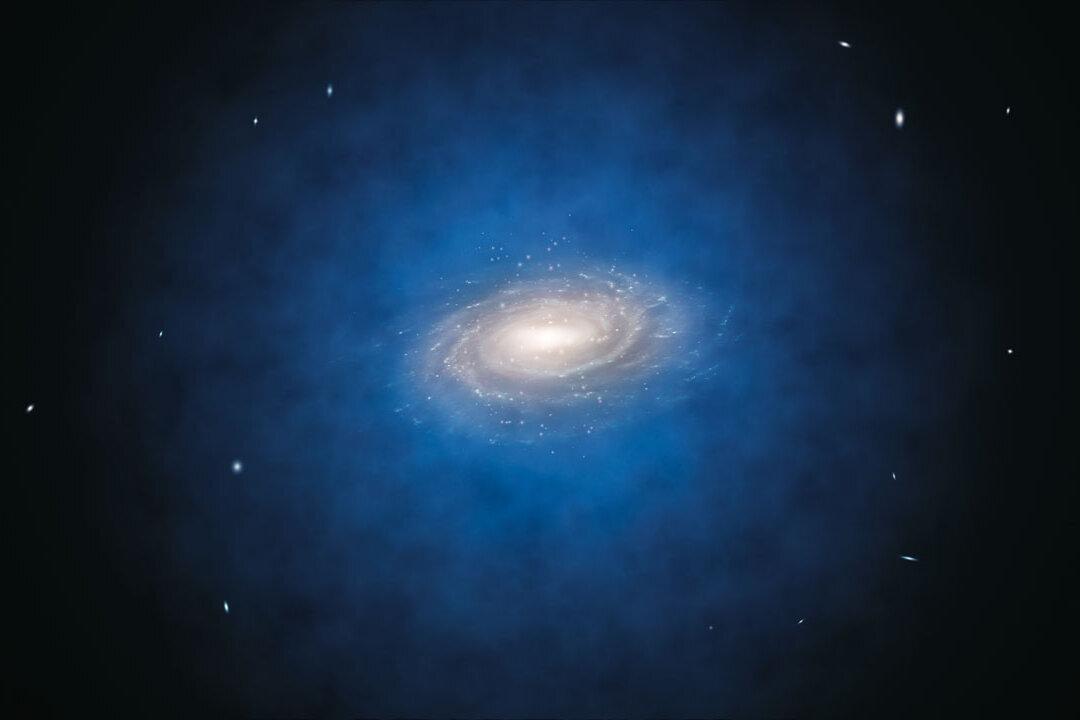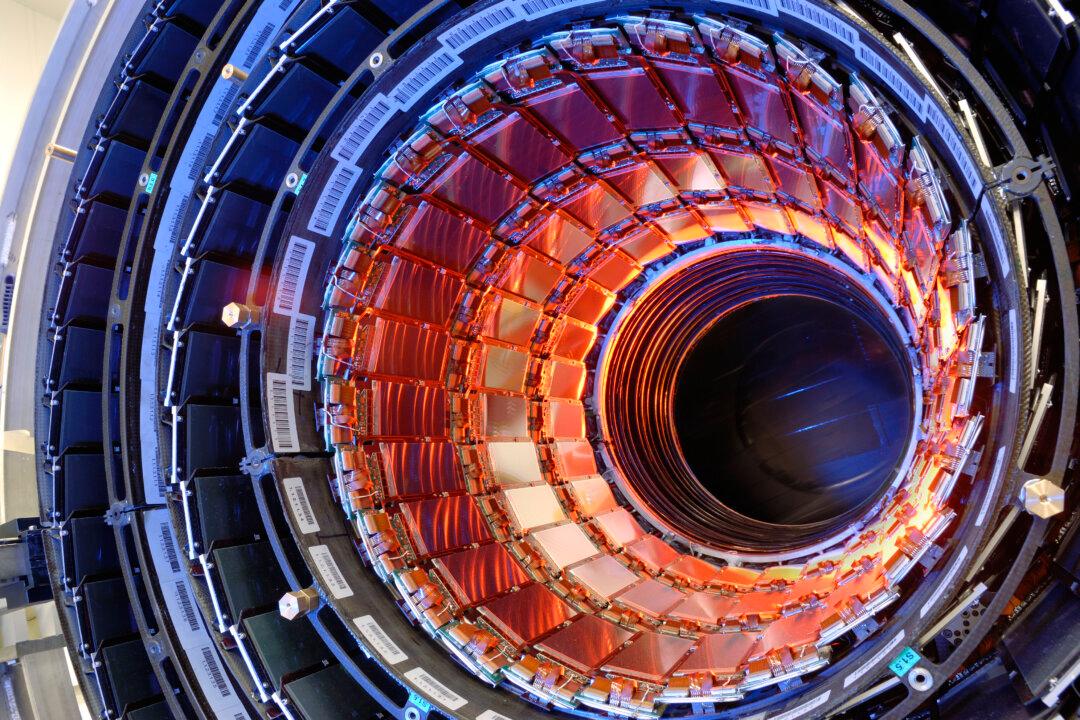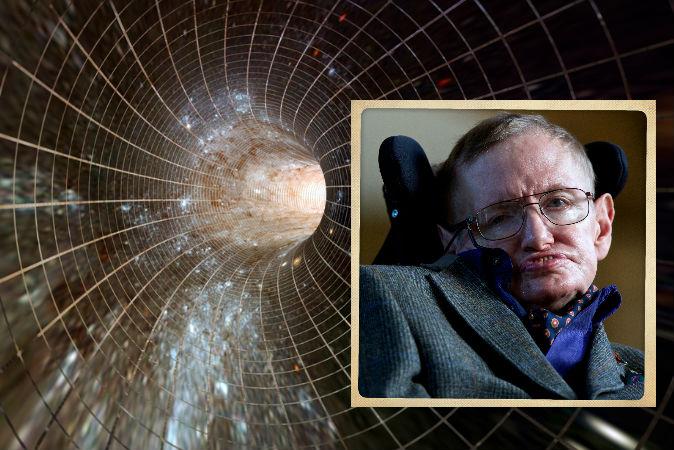Focus
Large Hadron Collider
LATEST
|
Benefits of Knowing More About Neutrinos Which Pass Through Our Bodies Unnoticed
The observation that neutrinos have mass, which led to the 2015 Nobel Prize for Physics being awarded jointly to Japan’s Takaaki Kajita Japan and Canada’s Arthur McDonald, is important for two key reasons.
|
How We Plan to Bring Dark Matter to Light
Long before we had the atomic theory of matter, scientists knew the air was real, even though it was invisible.
|
The Large Hadron Collider Is Back in Action
After two-years of upgrades and repairs, the Large Hadron Collider is back in the particle-smashing business—this time at double the energy of its first run.
|
Stephen Hawking: ‘God Particle’ Higgs Boson Could Destroy the Universe
Time and space could collapse if, at high energy levels, the Higgs boson particle becomes unstable, said Stephen Hawking in the preface to a new anthology of lectures titled “Starmus.”
|
Looming Crisis in Physics, Answer Could Be in Other Dimensions
The Large Hadron Collider earned its fame finding the Higgs boson particle, the so-called “God particle,” but it failed to find something very important it was looking for—superpartner particles.
|
Definitely, Maybe: Evidence Grows for Positive ID of Higgs Boson
Physicists are now almost certain the curious “Higgs-like particle” revealed at CERN last year is a Higgs boson.
|
Could the Higgs Mass Determine the End of the Universe?
You may have heard in the recent media that the world was going to end.
|
|
Benefits of Knowing More About Neutrinos Which Pass Through Our Bodies Unnoticed
The observation that neutrinos have mass, which led to the 2015 Nobel Prize for Physics being awarded jointly to Japan’s Takaaki Kajita Japan and Canada’s Arthur McDonald, is important for two key reasons.
|
How We Plan to Bring Dark Matter to Light
Long before we had the atomic theory of matter, scientists knew the air was real, even though it was invisible.
|
The Large Hadron Collider Is Back in Action
After two-years of upgrades and repairs, the Large Hadron Collider is back in the particle-smashing business—this time at double the energy of its first run.
|
Stephen Hawking: ‘God Particle’ Higgs Boson Could Destroy the Universe
Time and space could collapse if, at high energy levels, the Higgs boson particle becomes unstable, said Stephen Hawking in the preface to a new anthology of lectures titled “Starmus.”
|
Looming Crisis in Physics, Answer Could Be in Other Dimensions
The Large Hadron Collider earned its fame finding the Higgs boson particle, the so-called “God particle,” but it failed to find something very important it was looking for—superpartner particles.
|
Definitely, Maybe: Evidence Grows for Positive ID of Higgs Boson
Physicists are now almost certain the curious “Higgs-like particle” revealed at CERN last year is a Higgs boson.
|
Could the Higgs Mass Determine the End of the Universe?
You may have heard in the recent media that the world was going to end.
|

